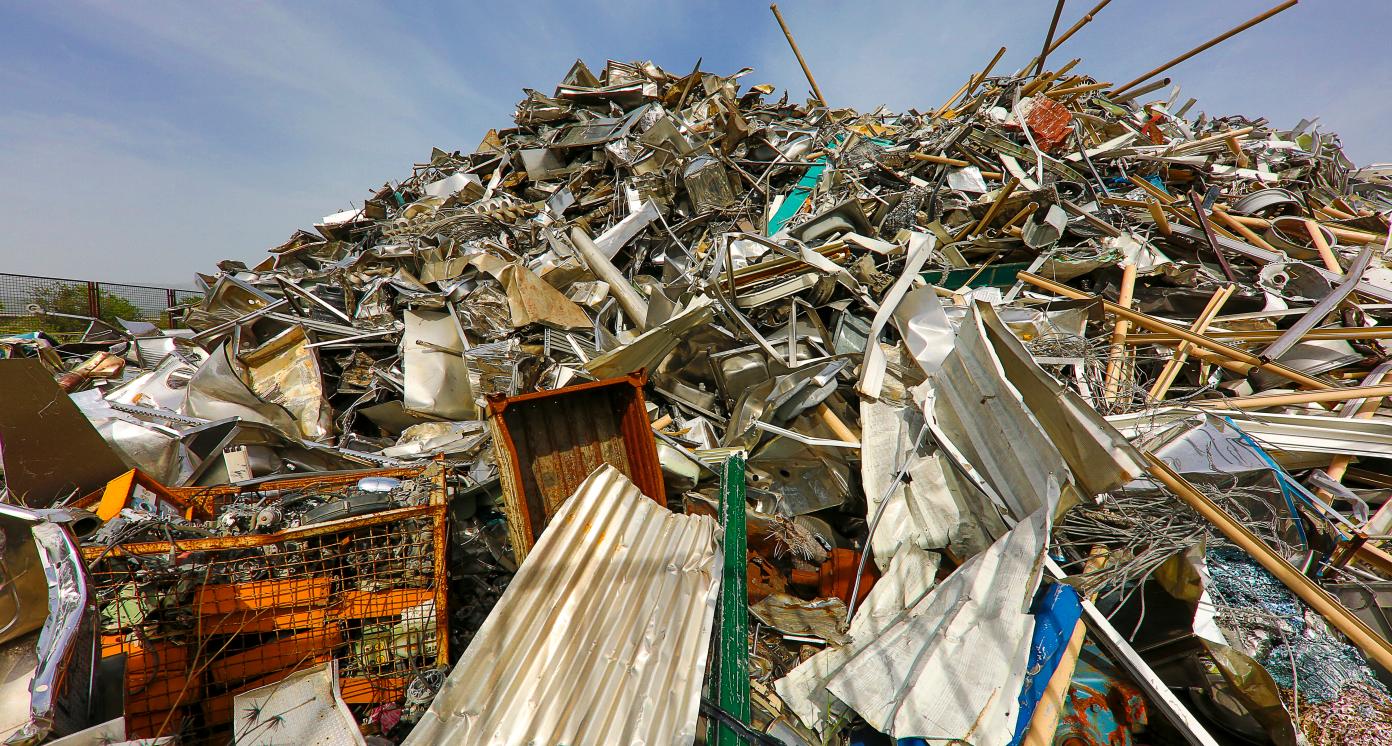Regional Solid Waste Management Systems Including Recycling & Valorization
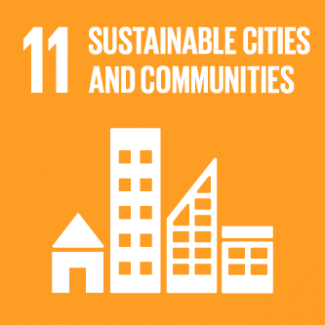
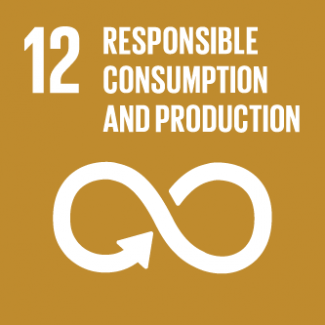
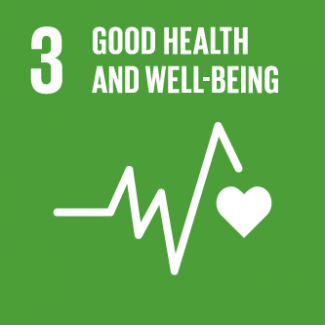
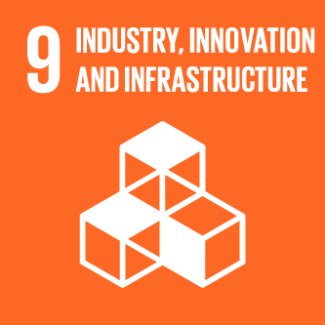
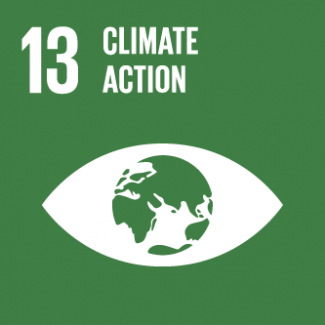
Business Model Description
Establish and operate regional waste management systems, that promote recycling initiatives and develop separate collection systems to address waste management challenges through partnerships with local governments or announced tenders and PPPs, generating revenue through service fees and recycling revenue.
Expected Impact
Enhance environmental sustainability, public health, and the overall quality of life by establishing efficient waste collection, recycling, and disposal practices that reduce pollution and promote responsible resource management.
How is this information gathered?
Investment opportunities with potential to contribute to sustainable development are based on country-level SDG Investor Maps.
Disclaimer
UNDP, the Private Finance for the SDGs, and their affiliates (collectively “UNDP”) do not seek or solicit investment for programmes, projects, or opportunities described on this site (collectively “Programmes”) or any other Programmes, and nothing on this page should constitute a solicitation for investment. The actors listed on this site are not partners of UNDP, and their inclusion should not be construed as an endorsement or recommendation by UNDP for any relationship or investment.
The descriptions on this page are provided for informational purposes only. Only companies and enterprises that appear under the case study tab have been validated and vetted through UNDP programmes such as the Growth Stage Impact Ventures (GSIV), Business Call to Action (BCtA), or through other UN agencies. Even then, under no circumstances should their appearance on this website be construed as an endorsement for any relationship or investment. UNDP assumes no liability for investment losses directly or indirectly resulting from recommendations made, implied, or inferred by its research. Likewise, UNDP assumes no claim to investment gains directly or indirectly resulting from trading profits, investment management, or advisory fees obtained by following investment recommendations made, implied, or inferred by its research.
Investment involves risk, and all investments should be made with the supervision of a professional investment manager or advisor. The materials on the website are not an offer to sell or a solicitation of an offer to buy any investment, security, or commodity, nor shall any security be offered or sold to any person, in any jurisdiction in which such offer would be unlawful under the securities laws of such jurisdiction.
Country & Regions
- Albania: Tirana
- Albania: Vlorë
- Albania: Kukës
- Albania: Dibër
Sector Classification
Infrastructure
Development need
Albania's critical infrastructure is susceptible to adverse impacts of climate change, and the process of climate-proofing proves both costly and technically complex. Solid waste and waste-water management lacks an organized system, where most generated wastewater remains untreated and only 10% of urban waste is recycled. Despite the increase in internet usage and penetration of broadband, access to fixed broadband networks remains low, serving 12.6% of the population (3, 4, 5, 6).
Policy Priority
The National Strategy for Development and European Integration 2022-2030, sets the infrastructure priorities as improving rural and urban infrastructure, promoting sustainability, and integrating with European networks, focusing on water supply, maritime transport, ICT, waste management and healthcare (1).
Gender inequalities and marginalization issues
In rural areas, only 57% of the population has access to water services, and a mere 19.6% of agricultural land benefits from irrigation. These water supply challenges and irregular waste collection disproportionately burden women and the Roman and Egyptian communities, leading to substantial losses in time, energy, and income (2, 10).
Investment opportunities introduction
The Albanian government lists the infrastructure sector as a key focus area for attracting foreign direct investments. Transport, telecommunication, infrastructure and urban waste are identified as sectors for strategic investments featuring fiscal and administrative incentives. The total investment for key infrastructure projects as per the Economic Reform Programme 2022-2024, amounts to a substantial USD 5.1 billion (ALL 51 billion) (7, 8, 9).
Key bottlenecks introduction
Limitations of the Public-Private Partnership (PPP) framework in Albania are hindering progress in crucial sectors such as air transport, roads, and Information and Communications Technology (ICT), where existing state of infrastructure is 70-80% behind the EU, ranking 110th of 160 globally on indicators of infrastructure adequacy (10,11).
Waste Management
Solid waste management lacks an organized system, where services are concentrated in urban areas, causing the emergence of illegal open dumpsites and informal waste picking activities. Recovery levels of recyclable waste are low, with only 10% of urban waste recycled causing heavy reliance on landfilling, and merely 70% of the population is covered by waste collection services (4, 12).
Policy priority
Albania's National Integrated Waste Management Plan outlines a phased approach to expand waste management services, from a 70% coverage in 2019 to 80% by 2025, 90% by 2030, and 95% by 2035. The Government Program 2021-25 emphasizes the need for integrated waste management across the nation, highly intertwined with the development of the tourism sector (12, 37).
Investment opportunities introduction
The 2015 Law on Strategic Investments in Albania prioritizes key sectors like infrastructure and urban waste. The waste management sector in Albania, valued at EUR 234.2 million (USD 255.8 million), presents a promising market opportunity with government investments spanning across regional infrastructure, sanitary landfills, incinerators, and transfer stations (4, 14).
Key bottlenecks introduction
Albania's waste management centers on landfills and illegal dumping, with minimal recycling by informal pickers. Challenges include EU alignment, unclear responsibilities, incomplete infrastructure, limited circular economy funding, and inadequate waste data monitoring, hampering planning (4, 15).
Waste Management
Pipeline Opportunity
Regional Solid Waste Management Systems Including Recycling & Valorization
Establish and operate regional waste management systems, that promote recycling initiatives and develop separate collection systems to address waste management challenges through partnerships with local governments or announced tenders and PPPs, generating revenue through service fees and recycling revenue.
Business Case
Market Size and Environment
USD 100 million - USD 1 billion
Total managed waste per capita 295 kg in 2022
The investment market value of the waste management sector in Albania is measured at approximately EUR 234.2 million (USD 255.81 million). The country's recycling industry featured 32 registered companies operating in the sector employing a workforce of 1,249 individuals and featuring an installed production capacity of 498,480 tonnes per year (4).
Total managed waste per capita in Albania was 295 kg, with 34 kg from non-urban and 261 kg from urban sources, in 2022 (19).
In 2019, approximately 70% of Albania's population had access to waste collection services, and 60% of the generated waste was collected (4).
Indicative Return
10% - 15%
The IRR calculation for a concessional loan at a 4.5% interest rate provided under the Joint European Support for Sustainable Investment in City Areas including recycling and solid waste management components, in a neighbouring country was 10.8% at the baseline scenario (18).
Investment Timeframe
Medium Term (5–10 years)
The Joint European Support for Sustainable Investment in City areas estimates a medium-term timeframe for investments in solid waste management – calculating the payback period at 8 years (18).
Ticket Size
> USD 10 million
Market Risks & Scale Obstacles
Capital - Requires Subsidy
Market - Highly Regulated
Capital - Limited Investor Interest
Impact Case
Sustainable Development Need
Albania faces challenges with low recycling rates and a heavy reliance on landfilling for waste disposal, an estimated 10-18.5 % of municipal waste was collected for recycling, mainly by informal waste pickers, who collect waste from dumpsites and bins. Most waste is collected at designated points, leaving 30% of the population without formal collection services in 2019 (4).
Albania's waste management predominantly relies on landfilling, encompassing both legal and illegal practices. Existing focus on incineration as a means of managing waste raises concerns on the impact on the environment and public health. Untreated waste remaining in landfills present high risks such as methane emissions, and soil, ground water and surface water contamination (4, 39).
Existing waste-management practices remain linear, based on a collect-and-dispose approach, where separate collection for recycling remains uncommon and lacks clear enforcement mechanisms (13).
Gender & Marginalisation
Mainly urban areas are covered by waste collection services, while rural areas remain excluded. In 2019, only 60% of the generated waste was collected for treatment, nation-wide (4).
Informality in the waste management sector remains a significant challenge, especially for minority communities such as the Roma community, who lack necessary equipment and training, operate in hazardous conditions, and lack formal agreements with scrap buyers (4).
Women make up approximately 70% of the workforce in the fields of recycling and green recovery. The adverse effects of unsustainable production, waste generation, and pollution are more pronounced among women, including the added strain on vital natural resources required for their livelihoods, subpar working conditions in sectors with predominantly female employees, and a heightened load of unpaid tasks associated with waste management (15).
Expected Development Outcome
Investments in sustainable waste management systems at the regional level will reduce landfill use, increase recycling rates, and improve environmental outcomes, bringing the country closer to European Union environmental standards.
Investments in waste management services will promote circular economy principles, creating green job opportunities while promoting both economic growth and environmental protection.
The introduction of climate-friendly, resource-efficient and economically viable waste management services will reduce health risks and environmental pollution, decrease greenhouse gas emissions, and produce strong cross-sectoral impact including for the tourism sector.
Gender & Marginalisation
Investments in regional waste management facilities will improve working conditions for informal waste-pickers, primarily from the Roman communities, providing better livelihoods for marginalized communities, enhancing the status of waste pickers and reducing hazardous material exposure and hazardous working conditions.
Waste management investments will also benefit women by preventing environmental and occupational hazards, and reducing unpaid workload, while promoting better job prospects. This positive change can foster greater gender equality and contribute to Albania's economic and social development, creating a more inclusive and sustainable future.
Primary SDGs addressed

11.6.1 Proportion of municipal solid waste collected and managed in controlled facilities out of total municipal waste generated, by cities
In 2019, approximately 60% of the waste generated was collected and managed, out of the total municipal waste generated (12).
The National Integrated Waste Management Plan in Albania outlines a phased approach to expand waste management services, aiming for 70% coverage in 2019, 80% by 2025, 90% by 2030, and 95% by 2035 (12).

12.5.1 National recycling rate, tons of material recycled
In 2019, 17% of waste was recycled in Albania (12).
Albania aims to achieve a 30% waste recycling rate by 2030 and further increase it to 40% by 2035 as part of its commitment to sustainable waste management (12).
Secondary SDGs addressed



Directly impacted stakeholders
People
Gender inequality and/or marginalization
Planet
Corporates
Public sector
Indirectly impacted stakeholders
People
Gender inequality and/or marginalization
Planet
Corporates
Outcome Risks
Increased recycling investment, without concurrent circular economy and waste prevention measures, risks exacerbating mass consumption (21).
The establishment of new waste management facilities, such as landfills and transfer stations, can pose substantial environmental risks to soil, air, surface water, and groundwater, arising from noise and vibration impacts, as well as alterations to the existing landscape.
Gender inequality and/or marginalization risk: Unless incorporated to formalized waste management and valorization systems, informal waste pickers may lose a crucial income source.
Impact Risks
Poor data quality, reliant on estimations and informal waste pickers, poses risks by hindering recycling rate assessment and waste management planning. Challenges arise from unreliable data and financial incentives inflating waste volumes, impacting environmental efforts (4).
The implementation and enforcement of waste management laws in Albania are at a very low level. This poses a risk of inadequate compliance with waste management regulations, potentially leading to negative environmental and health impacts (20).
The affordability threshold of the population for waste management costs may be exceeded, posing a financial burden. The lack of a long-term fiscal policy for waste management costs and inadequate planning of resources by municipalities could impact the financial sustainability of waste treatment facilities (15).
Gender inequality and/or marginalization risk: Women in the informal waste sector may face marginalization as formalization favours men controlling valuable waste materials, while women are left with low-value waste segregation and disposal tasks (24).
Impact Classification
What
Enhancing waste management practices, transitioning from landfill dependence to recycling and waste-valorization practices, while aligning with EU standards.
Who
The population will benefit from a cleaner environment and enhanced public health, private waste management companies will access increased opportunities.
Risk
Financial challenges may deter recycling growth, irregular waste management poses environmental and health risks, and formalization can risk livelihoods of marginalized communities.
Contribution
Enhancing waste practices will lead to reduced pollution, resource conservation, and the creation of green jobs, promoting both economic growth and environmental protection.
How Much
Investment will help advance the goal of reaching 40% recycling by 2035 promoting waste reduction and sustainability (12).
Impact Thesis
Enhance environmental sustainability, public health, and the overall quality of life by establishing efficient waste collection, recycling, and disposal practices that reduce pollution and promote responsible resource management.
Enabling Environment
Policy Environment
The National Integrated Waste Management Plan 2020-2035, 2020; aims to progressively increase resident population's access to waste management services, starting from a 2019 baseline of 70% and reaching 80% by 2025, 90% by 2030, and 95% by 2035 (12).
National Strategy for Development and European Integration 2022-2030: outlines specific policy objectives for the waste management sector until 2030, with a primary focus on meeting legal requirements and harmonizing the legal framework with EU regulations to ensure compliance with EU waste management directives, underscoring the critical need for sustainable financing mechanisms (1).
Government Programme 2021-2025, 2021: emphasizes the need for integrated waste management across the nation, highly intertwined with the development of the tourism sector (37).
Financial Environment
Financial incentives: Under the IPA 2016 EU Support Waste Water Management and Treatment Services action, there are plans to improve the water supply, sewer network, and the wastewater treatment plant in Himara as part of the KfW Integrated Waste Management of North Vlora Waste Areas project, running from 2020 to 2023, backed by a EUR 40 million loan (30).
Fiscal incentives: Investments greater than EUR 30 million (USD 32.06 million) under the urban waste sector enjoy the status of assisted procedure, while investments of EUR 50 million (USD 53.42 million) or more enjoy special procedure status, offering VAT exemptions (36).
Regulatory Environment
Law No. 10463, On the Integrated Management of Solid Waste, 2011; aims to ensure the protection of the environment and human health against pollution and damage resulting from solid waste. To achieve these aims, it establishes rules governing the environmental treatment of solid wastes at every stage: creation, collection, separation, transportation, recycling, processing, and disposal (25).
Law No. 8094, Concerning Public Disposal of Waste, 1996; aims to establish regulations for the proper disposal of waste within municipal areas, with the goal of safeguarding the urban environment from the adverse effects of waste pollution (27).
Regulation No. 94 date 14.2.2018 amending and supplementing Regulation no. 641 date 1.10.2014 on the rules of procedure for the export of solid waste and transit of non-dangerous solid waste, 2018; aims to safeguard, preserve and enhance environmental quality and human health by reducing the adverse effects of waste export and the transit of non-hazardous solid waste and amends Regulation 614 of 2014 (26).
Regulation no. 641 date 1.10.2014 approving the rules of procedure for the export of solid waste and transit of non-dangerous solid waste, 2014; aims to enhance environmental quality and human health by reducing the adverse effects of waste export and the transit of non-hazardous solid waste, with a focus on protection, conservation, and improvement (28).
Law no. 55/2015 On Strategic Investments, 2016: aims to increase Albanian and foreign strategic investments in the sectors of the economy considered as strategic sectors, through the establishment of special favorable administrative procedures, mitigating and support services to the investors (32).
Law no. 125/2013 On Concessions and Public Private Partnership, April 2013 (amended 2019): abolishes the 2006 Law no. 9663 on Concessions, provides that changes in the ownership or the management of the Special Purpose Vehicle (SPV) are subject to the approval of the contracting authority and the Ministry of Finance, unless such changes are due to trading of shares in a regulated capital market (26).
Marketplace Participants
Private Sector
Eco Tirana, Eco Recycling, AMA Recycling, Albanian Recycling Company, Green Recycling, Skrap Albania, Albi Plastics, V.A.L.E Recycling.
Government
Ministry of Infrastructure and Energy, National Agency for Water Supply and Sewerage and Waste Infrastructure, National Environmental Agency.
Multilaterals
The World Bank, Western Balkans Investment Framework (WBIF), KfW Development Bank, Swiss State Secretariat for Economic Affairs (SECO).
Non-Profit
Albanian Recyclers Association, EcoAlbania, Sustainable Environment Albania (SEA).
Target Locations
Albania: Tirana
Albania: Vlorë
Albania: Kukës
Albania: Dibër
References
- (1) State Agency for Strategic Programming and Aid Coordination (SASPAC). 2023. National Strategy for Development and European Integration (NSDEI) 2022-2030. Available Upon Request.
- (2) European Commission. 2014. Support to Water Management. https://neighbourhood-enlargement.ec.europa.eu/system/files/2017-04/ipa_2016-038718-5_support_to_water_management.pdf
- (3) IMF. 2022. Albania: Selected Issues. https://www.imf.org/-/media/Files/Publications/CR/2022/English/1ALBEA2022005.ashx
- (4) European Environment Agency. 2021. Municipal waste management in Western Balkan countries — Country profile Albania. https://www.eea.europa.eu/themes/waste/waste-management/municipal-waste-management-country/albania-municipal-waste-factsheet-2021/at_download/file
- (5) Ministry of Infrastructure and Energy.2020. National Plan for Sustainable Development of Digital Infrastructure, Broadband 2020-2025. https://www.infrastruktura.gov.al/wp-content/uploads/2020/07/National-Plan-BBand-EN.pdf
- (6) Council of Ministers. 2019. NSDI II, 2015-2020 Mid-Term Monitoring Report. Available Upon Request.
- (7) Albania Council of Ministers. 2022. Economic Reform Programme 2022-2024. https://financa.gov.al/wp-content/uploads/2022/02/ERP-2022-2024.pdf
- (8) Albanian Investment Development Agency (AIDA). 2022. Albania Calls a Country of Opportunities. https://aida.gov.al/images/PDF/Albania%20Calls%202022.pdf.
- (9) EBRD. 2020. Albania Country Strategy 2020-2025. https://www.ebrd.com/strategy-and-policy-coordination/strategy-for-albania.pdf
- (10) IFC. 2022. Creating Markets in Albania: Taking Advantage of New Trade and Investment Opportunities for a More Robust Private Sector. https://www.ifc.org/content/dam/ifc/doc/mgrt/cpsd-albania-summary.pdf
- (11) Martijn, J. K., Sun, Y. M., et al. (2023). The Future of PPPs in the Western Balkans. IMF Working Papers. https://www.elibrary.imf.org/view/journals/001/2023/031/article-A001-en.xml
- (12) Ministry of Tourism and Environment. 2020. National Integrated Waste Management Plan 2020-2035. https://turizmi.gov.al/wp-content/uploads/2020/07/Dokumenti-i-Politikave-Strategjike_AL.pdf
- (13) The Deutsche Gesellschaft für Internationale Zusammenarbeit (GIZ). 2021. Albania is modernizing its solid waste management systems. https://www.giz.de/en/worldwide/62845.html
- (14) Food and Agriculture Organization of the United Nations. January, 2016. Law on Strategic Investments of Albania 2016. https://www.fao.org/faolex/results/details/en/c/LEX-FAOC203924/.
- (15) EU Commission. 2021. Action Document for EU for Circular Economy and Green Growth. https://www.gtai.de/resource/blob/799250/e7d6da1854bdc4275c3bb6a8bf795631/PRO20220211799224%20-%20Annex4.PDF
- (16) OpenCorporates.al. N.d. https://opencorporates.al/sq/nipt/l61908027s
- (17) OpenCorporates.al. N.d. https://opencorporates.al/sq/nipt/l71920025r
- (18) European Investment Bank. 2010. JESSICA Instruments for Solid Waste Management in Greece Study - Final Report - Part 1 Analysis of Solid Waste Management in Greece. https://www.eib.org/attachments/documents/jessica-instruments-for-solid-waste-management-in-greece-en.pdf
- (19) INSTAT. 2023. Urban Solid Waste, 2022. https://www.instat.gov.al/media/12579/urban-solid-waste-2022.pdf
- (20) United Nations Economic Commission for Europe (UNECE). 2018. Environmental Performance Reviews: Albania (Third Review). https://unece.org/fileadmin/DAM/env/epr/epr_studies/ECE.CEP.183_Eng.pdf
- (21) OECD. 2021. Towards a more resource-efficient and circular economy: The role of the G20. https://www.oecd.org/environment/waste/OECD-G20-Towards-a-more-Resource-Efficient-and-Circular-Economy.pdf
- (22) Abubakar, I.R.,et al. 2022. Environmental Sustainability Impacts of Solid Waste Management Practices in the Global South. International Journal of Environmental Research and Public Health. https://www.ncbi.nlm.nih.gov/pmc/articles/PMC9566108/pdf/ijerph-19-12717.pdf
- (23) United Nations Environment Programme (UNEP). N.d. Gender and Waste management. https://www.unep.org/ietc/what-we-do/gender-and-waste-management
- (24) United Nations Environment Programme, & International Environmental Technology Centre 2022. Gender and Waste Management: Did You Know…?. https://wedocs.unep.org/bitstream/handle/20.500.11822/41531/gender_waste_EN.pdf?sequence=4&isAllowed=y
- (25) Food and Agriculture Organization of the United Nations. 2022. Albania - Law No.10463 dated 22.9.2011 on the integrated management of solid waste. https://www.fao.org/faolex/results/details/en/c/LEX-FAOC113034
- (26) Food and Agriculture Organization of the United Nations. 2018. Albania - Regulation No. 94 date 14.2.2018 amending and supplementing Regulation no. 641 date 1.10.2014 on the rules of procedure for the export of solid waste and transit of non-dangerous solid waste. https://www.fao.org/faolex/results/details/en/c/LEX-FAOC176100
- (27) Food and Agriculture Organization of the United Nations. 2006. Albania - Law No. 8094 concerning public disposal of waste. https://www.fao.org/faolex/results/details/en/c/LEX-FAOC060716
- (28) Food and Agriculture Organization of the United Nations. 2015. Albania - Regulation no. 641 date 1.10.2014 approving the rules of procedure for the export of solid waste and transit of non-dangerous solid waste. https://www.fao.org/faolex/results/details/en/c/LEX-FAOC145025
- (29) Delegation of the European Union to Albania. 2023. EU launches new project: EU for Circular Economy. https://www.eeas.europa.eu/delegations/albania/eu-launches-new-project-eu-circular-economy_en?s=214
- (30) Prime Minister's Office, Chief Negotiator, National IPA Coordinator. 2021. 2020 IPA II Annual Implementation Report – Republic of Albania. https://integrimi-ne-be.punetejashtme.gov.al/wp-content/uploads/2021/08/Annual-Implementing-report-IPA-2020.pdf
- (31) UNDP ICPSD – Plenary Group for the Smart Specialization Strategy on Tourism Workshop. June 2023.
- (32) Albanian Investment Development Agency (AIDA). Strategic Investments in Albania. https://aida.gov.al/en/strategic-investments/strategic-investments-in-albania.
- (33) Republic of Albania, The Assembly. 2013. Law No. 125/2013 on Concessions and Public Private Partnership.https://track.unodc.org/uploads/documents/BRI-legal-resources/Albania/17_-Albania_Law_no_125_2013_on_Concessions_and_Public_private_Partnership.pdf
- (34) EBRD. 2011. Assessment of the quality of the PPP legislation and of the effectiveness of its implementation: Albania.https://ppp.worldbank.org/public-private-partnership/sites/ppp.worldbank.org/files/2022-06/albania.pdf
- (35) INSTAT. 2022. Regional Statistical Yearbook - Prefectures and Municipalities. https://www.instat.gov.al/media/11124/regional-statistical-yearbook-2022_04.pdf.
- (36) U.S. Department of State. 2019 Investment Climate Statements: Albania. https://www.state.gov/reports/2019-investment-climate-statements/albania/.
- (37) Republic of Albania Council of Ministers. 2021. Government Programme 2021-2025. https://www.kryeministria.al/wp-content/uploads/2021/10/Government-Program-2021-2025.pdf.
- (38) KfW. 2018. Sector Study for Investment Demand for Integrated Solid Waste Management in Albania. https://infrastruktura.gov.al/wp-content/uploads/2018/09/ISWM-Albania-Final-Sector-Study-Report-20180808-1.pdf
- (39) Institute for Democracy and Mediation. 2021. Waste Management in Albania: An Opportunity to Demonstrate Commitment to EU Integration. https://idmalbania.org/wp-content/uploads/2021/11/IDM-Waste-Management-in-Albania-EN-1.pdf.
- (40) The Foreign Investors Association of Albania (FIAA). 2021. White Book Albania 2021-2025. https://fiaalbania.al/wp-content/uploads/2021/10/WhiteBook202-2025.pdf















